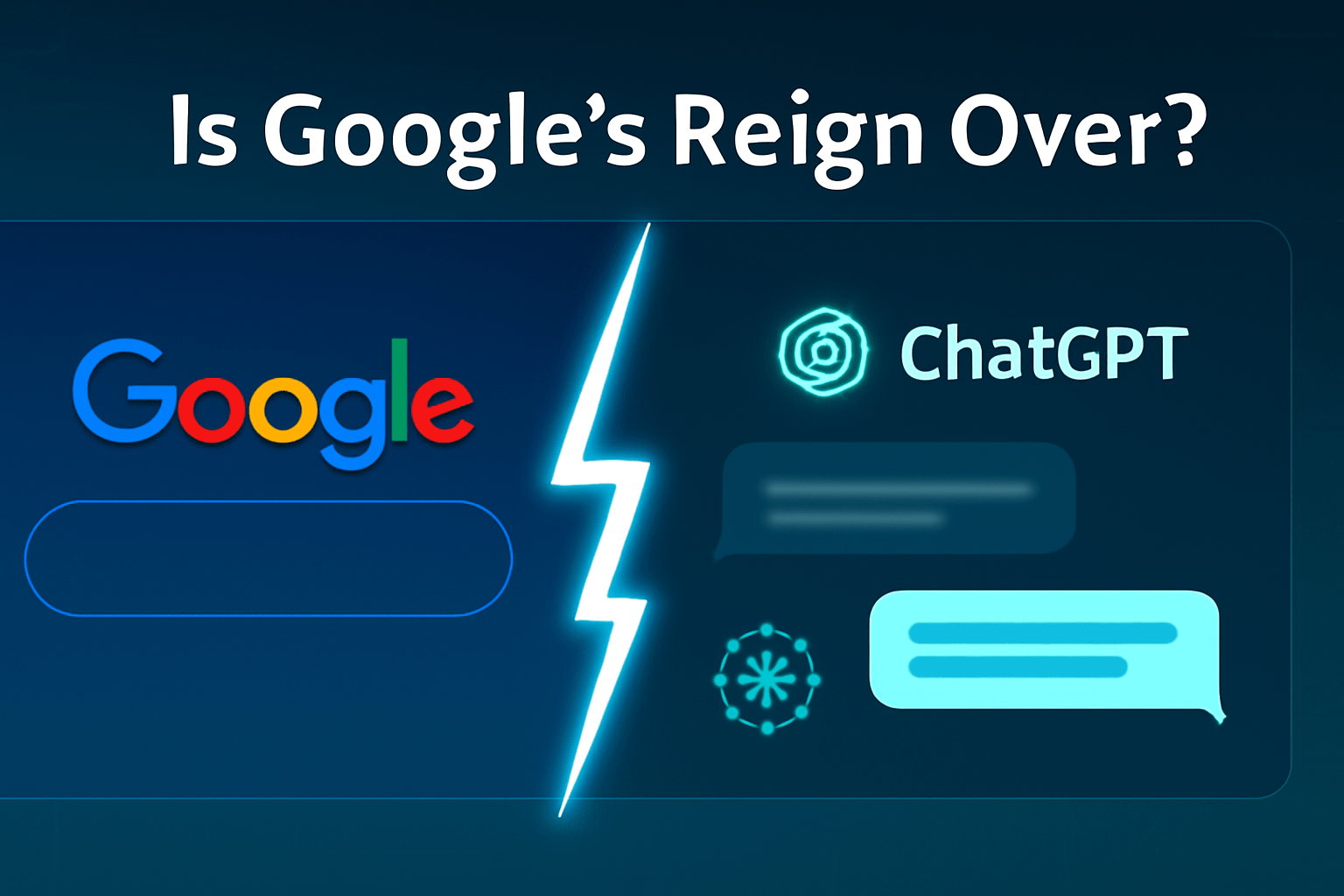Is Google's Reign Over?

For decades, Google has been synonymous with search. Its ability to swiftly deliver relevant information from the vast expanse of the internet solidified its dominance. However, the emergence of AI-powered conversational platforms like ChatGPT has ignited a fierce debate: Could this new technology dethrone the search giant?
A New Era of Interaction: The Rise of Conversational AI
ChatGPT marks a pivotal shift from traditional search to a more interactive and intuitive model of information retrieval. Unlike search engines that rely on keyword matching, ChatGPT excels in understanding and responding to complex queries in a conversational manner. This AI-powered language model can provide comprehensive and contextually relevant information, transforming the way users engage with technology.
This ability to converse and understand context has made ChatGPT, and similar AI models, an attractive alternative to traditional search engines. Users can ask complex questions and receive detailed, nuanced answers without needing to click through multiple web pages. For many, this seamless experience offers a more intuitive way to access information.
A New Era of Search: The Google vs. ChatGPT Showdown
Google's reign as the undisputed search king is facing unprecedented challenges from AI-powered conversational platforms like ChatGPT. While traditional search excels at providing a vast array of information, ChatGPT offers a more interactive and personalized experience.
By delivering comprehensive, step-by-step guidance on complex queries, ChatGPT demonstrates a level of understanding and adaptability that traditional search engines struggle to match. This shift in user experience could potentially reshape the digital landscape, forcing Google to adapt or risk losing its dominance.
The Convergence of AI and Traditional Search
The advent of AI-powered conversational agents like ChatGPT has undeniably disrupted the search landscape. While Google remains a dominant force, the dynamics of information retrieval are undergoing a profound transformation. ChatGPT's ability to provide comprehensive, contextually relevant answers in a conversational format challenges the traditional model of keyword-based search.
However, it's crucial to recognize that these two approaches are not mutually exclusive. Google, with its vast resources and expertise, is rapidly integrating AI into its search engine. Features like BERT and the development of its own AI chatbot, Bard, demonstrate a commitment to evolving with the times. This suggests a future where search engines seamlessly blend the efficiency of traditional search with the conversational capabilities of AI.
The ultimate impact on users will depend on how effectively these technologies are integrated. A hybrid approach, combining the strengths of both models, could offer the best of both worlds: the breadth and depth of traditional search coupled with the personalized and interactive experience of conversational AI.
Nevertheless, the competitive landscape is heating up. As more players enter the arena, innovation will be key. The companies that can best anticipate user needs and deliver exceptional experiences will likely emerge as leaders in the new era of search.
Ethical Considerations and the Future of Search
Beyond the technological advancements, ethical considerations will also play a crucial role. Issues such as misinformation, privacy, and algorithmic bias must be addressed to ensure that AI-powered search benefits society as a whole. As the lines between search and conversation blur, it's clear that the future of information retrieval is poised for a dramatic overhaul.
Conclusion
So, did ChatGPT kill Google? Not quite, but it has certainly changed the game. The rise of AI-powered conversational agents like ChatGPT introduces a new way of interacting with information that could redefine how we think about search. Google remains a powerful player in the search engine arena, but it now faces a formidable challenger in the form of AI-driven conversation.
As the technology continues to evolve, we may witness a blending of these approaches, where traditional search engines and AI chatbots coexist, each serving different aspects of our information needs. For now, the question is not whether ChatGPT has killed Google, but how it has reshaped the future of search.

